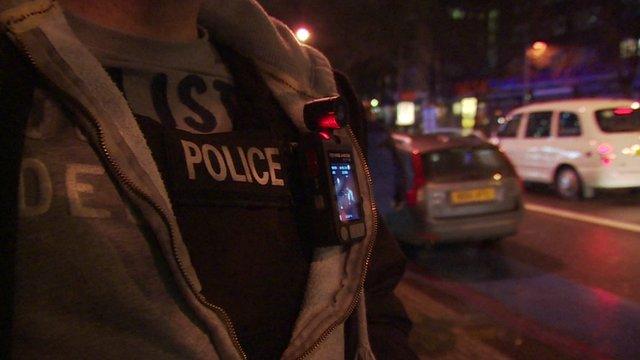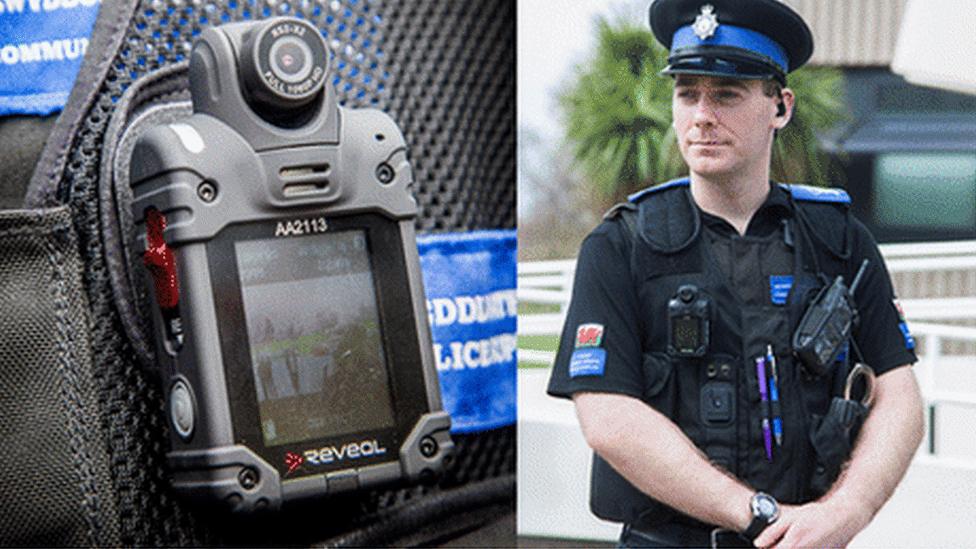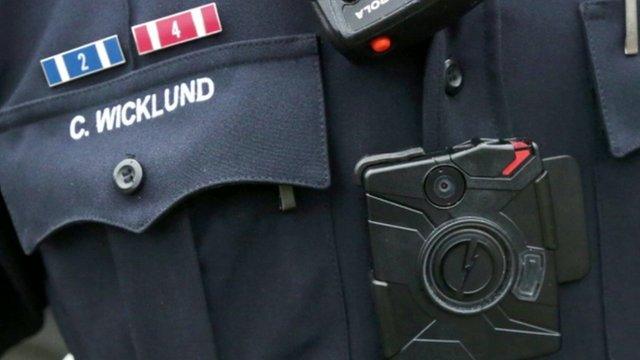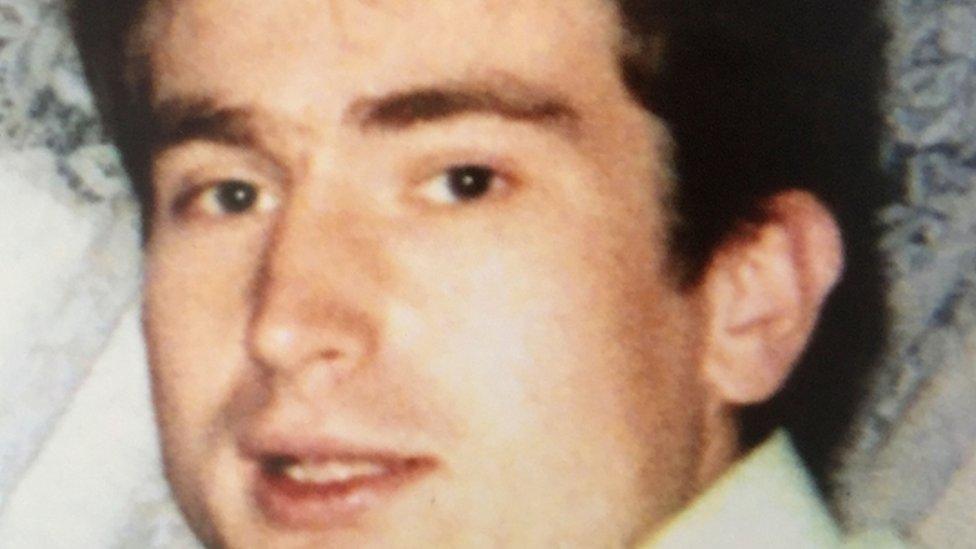Police body cameras 'cut complaints against officers'
- Published
Body-worn cameras were first introduced a decade ago
Police body cameras can dramatically reduce the number of complaints against officers, research suggests.
The Cambridge University study showed complaints by members of the public against officers fell by 93% over 12 months compared with the year before.
Almost 2,000 officers across four UK forces and two US police departments were monitored for the project.
Dr Barak Ariel, who led the research, said no other policing measure had led to such "radical" changes.
The study aimed to find out if the use of cameras, external, which are usually clipped to the top half of an officer's uniform, affected complaints against police made by the public.
The experiment involved police from Northern Ireland, the West Midlands, West Yorkshire, and Cambridgeshire, as well as the Rialto and Ventura police departments in California, working for a total of almost 1.5 million hours.
The findings, published in the journal Criminal Justice and Behaviour, showed there were 113 complaints made against officers during the year trial period, compared with 1,539 in the 12 months before - a reduction of 93%.
'Dramatic change'
Dr Ariel, who is based at the Cambridge Institute of Criminology, said: "I cannot think of any [other] single intervention in the history of policing that dramatically changed the way that officers behave, the way that suspects behave, and the way they interact with each other."
He said the results indicated both police and the public were adjusting their behaviour.
"Once [the public] are aware they are being recorded, once they know that everything they do is caught on tape, they will undoubtedly change their behaviour because they don't want to get into trouble.
Benjamin Read demonstrates how police body cameras work
"Individual officers become more accountable, and modify their behaviour accordingly, while the more disingenuous complaints from the public fall by the wayside once footage is likely to reveal them as frivolous."
Body-worn cameras were first introduced a decade ago and are now becoming a standard piece of police equipment in the UK.
There are no reliable figures on how many cameras there are, but it is thought they are available to most front-line officers in the majority of forces.
One of the odd findings from the research was that even among "control" groups, where officers were sent out without cameras attached, complaints plummeted.
Dr Ariel said that was because good practice and changes in policing culture were becoming embedded across each force as it adapted to the use of cameras - a phenomenon he described as "contagious accountability".
Secure convictions
Assistant Chief Constable Simon Megicks, from Hertfordshire Police, who was involved in the research, said a "number of factors" were behind the decline in complaints.
"It is the moderating factor that the camera brings in terms of people's behaviour and I think it helps us, the police, to be at the top of our game," he said.
The availability of footage of an incident has also helped police secure convictions, particularly in domestic violence cases where victims are sometimes reluctant to co-operate.
It is also thought to have contributed to an increase in reports of attacks on police. Research from Cambridge University, published in May, revealed that rates of assault against officers in eight forces were 15% higher when body-worn cameras were used.
Last week, the Independent Police Complaints Commission said the use of cameras worn by officers had helped its investigation into the fatal police shooting of James Fox, in Enfield in August 2015.
IPCC Commissioner Cindy Butts said: "This case is also notable for the positive use of body worn video which resulted in the incident being captured from two perspectives, capturing the officers' efforts to save Mr Fox's life and providing an impartial account that corroborated the officers' accounts of what happened that night."
Although the Cambridge research found cameras led to fewer complaints, last year IPCC data covering all forces and officers suggests the general trend is that complaints are increasing.
- Published14 January 2015

- Published27 June 2016

- Published2 December 2014

- Published17 August 2016
